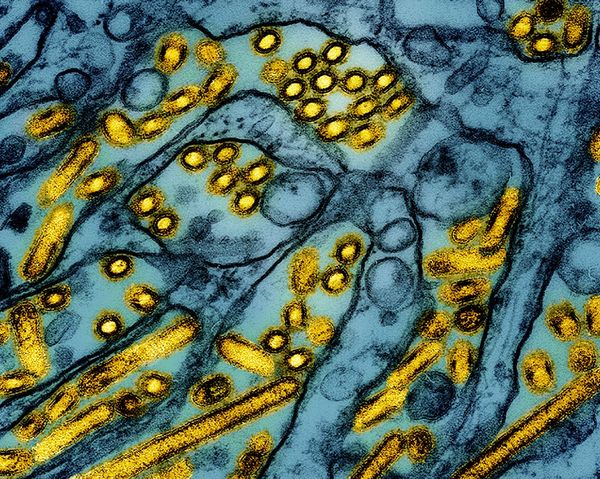
The founder of a neo-Nazi network that has proliferated rapidly around the world in recent years was sentenced in US federal court to two years of time served and two years of supervised release, capping a seven-year legal saga that has bewildered observers of the far right.
Robert Rundo, the 34-year-old founder of the neo-Nazi “Active Club” network, pleaded guilty in September of conspiracy to riot at a series of political rallies in California in 2017.
At the time of the rallies, Rundo was the leader of the Rise Above Movement (Ram), a neo-Nazi gang that inculcated members with fascist ideology and trained in combat sports for the purpose of attacking political opponents.
The sentence reflected an agreement reached by federal prosecutors and Rundo’s public defenders to resolve the case without trial. Josephine L Staton, a US district court judge, took into account the 725 cumulative days Rundo had served at various stages in the custody of American, Salvadoran, Serbian and Romanian authorities.
As part of his release, Rundo will be barred from associating with other members of Ram and submit to extensive electronic monitoring by probation officers of his electronic devices and internet activities, including all communications and cloud accounts.
Federal prosecutors indicted Rundo in 2018 on anti-riot charges stemming from fights with anti-fascist and leftwing protests in Huntington Beach, San Bernardino and Berkeley. A US district court judge, Cormac Carney, threw out those charges, arguing that the anti-riot act was unconstitutional. A ninth circuit panel reversed Carney’s ruling in 2021, and Rundo was extradited from Romania in 2023 to stand trial. Earlier this year, however, Carney again threw out the charges, this time arguing that prosecutors had selectively targeted Rundo. The ninth circuit court of appeals overturned that ruling, too. Rundo was rearrested, and he pleaded guilty in September.
In their sentencing memo, prosecutors have said that while abroad in recent years, Rundo had tried to evade capture by living under a fake identity and traveled extensively in eastern Europe promoting “militant extremism”.
Since he was charged in 2018, Rundo set up an international network of Ram clones that have proliferated throughout North America, Europe, Australia and even South America, according to his own social media channels, extremism researchers and media reports. Known as “Active Clubs”, the groups typically number from a handful to a dozen young men who go on hikes, train in combat sports, weightlift and build camaraderie.
The groups have been involved in political intimidation and violence, both in the United States and abroad. Most notably, they participated in a 2023 attack on a reception center for asylum claimants in a village near the western French city of Nantes, according to French researchers and reporters.
Over the years, Rundo also built strong ties with foreign neo-Nazi militants, which served as the building blocks on which he constructed the Active Club network. When Rundo fled the US in 2018 after the FBI raided his home, Denis Kapustin, a Russian-German citizen, former soccer hooligan and well-known neo-Nazi counseled him in real time on how to evade law enforcement, according to text conversations submitted into evidence by federal prosecutors.
“Azov guys are willing to help and if you need we’ll raise this whole topic on the internet,” Kapustin said, referring to a notorious far-right Ukrainian paramilitary group. “If there’s any problems at the airport here we will take care of that. But it is very unlikely … anyway, we got our guys at border control.”
Rundo has also maintained his Active Club ties in the US. Southern California’s rightwing extremist scene has shown full-throated support for Rundo: the local Active Clubs, including the veteran-heavy and now defunct Clockwork Crew, have been posting graffiti for years in support of their comrade. Gray Mayfield and Robert Wheldon, two core members of the Southern California Active Club, were with Rundo when he was arrested for the final time this spring by the FBI, and both testified at an April bail hearing.
Rundo had asked the judge that he be sentenced to time served, arguing that the cumulative two years he had already spent in US and foreign jails was sufficient punishment. His attorneys also cited harsh carceral conditions during his detentions in Serbia and Romania as well as the government’s collaboration with foreign law enforcement to surveil him during his years on the run as evidence that “Mr Rundo has already been punished in unique ways that extend well beyond his actual time spent in federal custody”.
The government had asked the judge to hand down a two-year prison sentence.
Dressed in a white jumpsuit, ankle shackles and a grey undershirt covering a Black Sun tattoo on his right elbow, Rundo told the judge on Friday that he was repentant for his actions nearly a decade ago. “I found community within the alt-right scene and foolishly, I thought I could play vigilante,” Rundo said about his decision to found Ram and train for violent confrontations with anti-fascists. “The views I held at 26 have changed. I’m 34 now and will stay the course of non-violence.” Rundo said he plans to move to Florida and take care of his mother.
“This process has taken nearly a decade out of my life,” Rundo said. “It’s a strong reminder to think before I speak, and think before I act.”
Rundo’s representatives did not respond to questions.
Staton, the judge, appeared to accept Rundo’s statement to the court that he no longer ascribed to far-right ideology and would pursue a path of non-violence going forward. “He should be given the benefit of the doubt,” she said.
“Good luck to you, Mr Rundo,” she told the defendant. “I hope I don’t see you again during your two years of supervised release.
Rundo will be released from custody later today.
Before the verdict, Hannah Gais, a senior research analyst at the Southern Poverty Law Center, said she believes the government’s insistence on a prison term for Rundo shows not only the gravity of his case, but the need for a deterrent effect.
“Locking up Rundo instead of giving him time served is authorities’ way of signaling they’re taking this particular case very seriously – we’re not talking about a white supremacist who was cooperating with an investigation into his criminal activities, but someone who made a point to evade authorities at all costs. The sentence clearly reflects that,” Gais said.
Gais was skeptical about Rundo’s arguments of reform. “We’ve seen time and time again that these guys will just jump right back into the movement after getting out. It’s hard for me to see a future where Rundo doesn’t do just that.”







